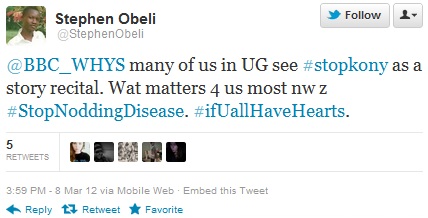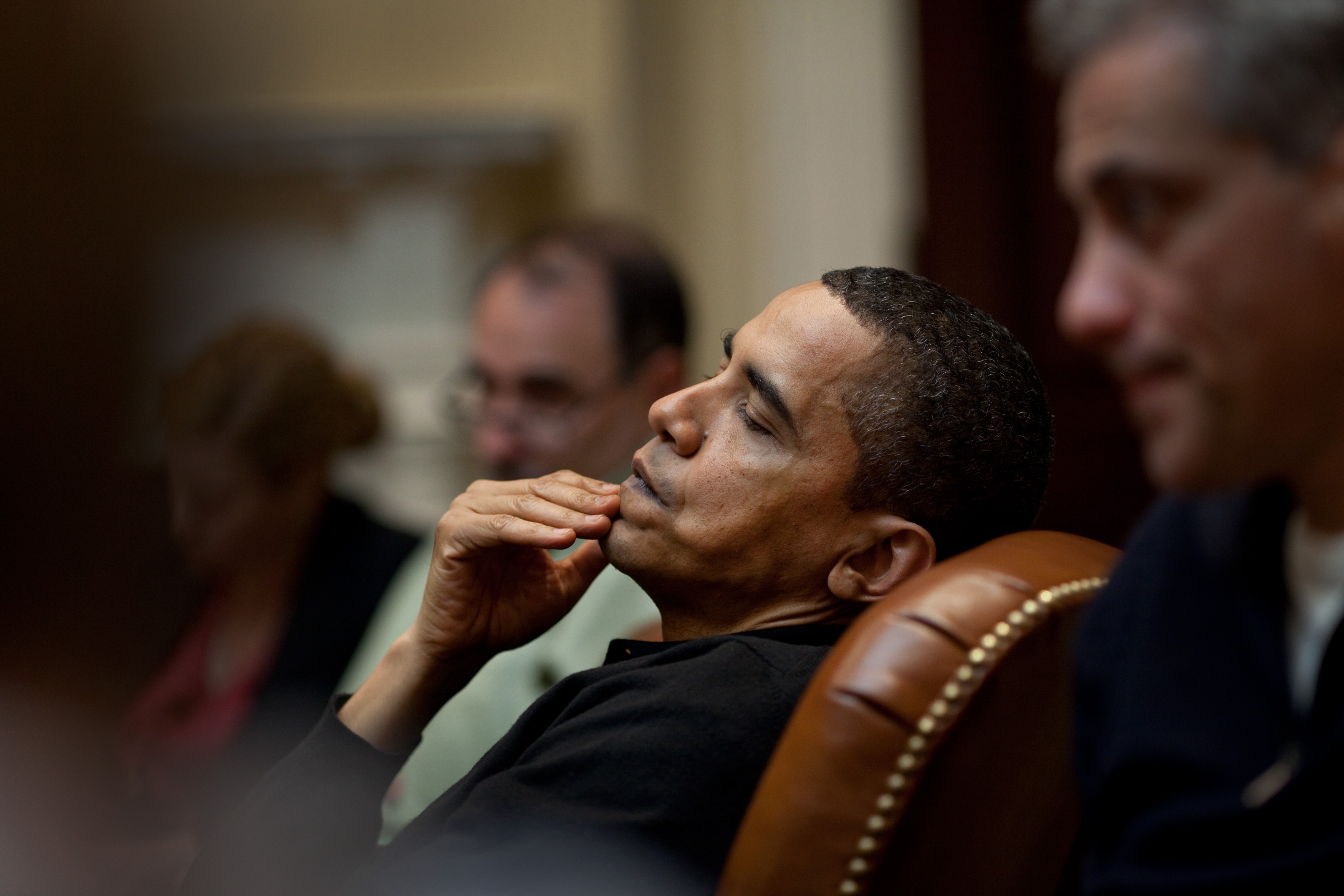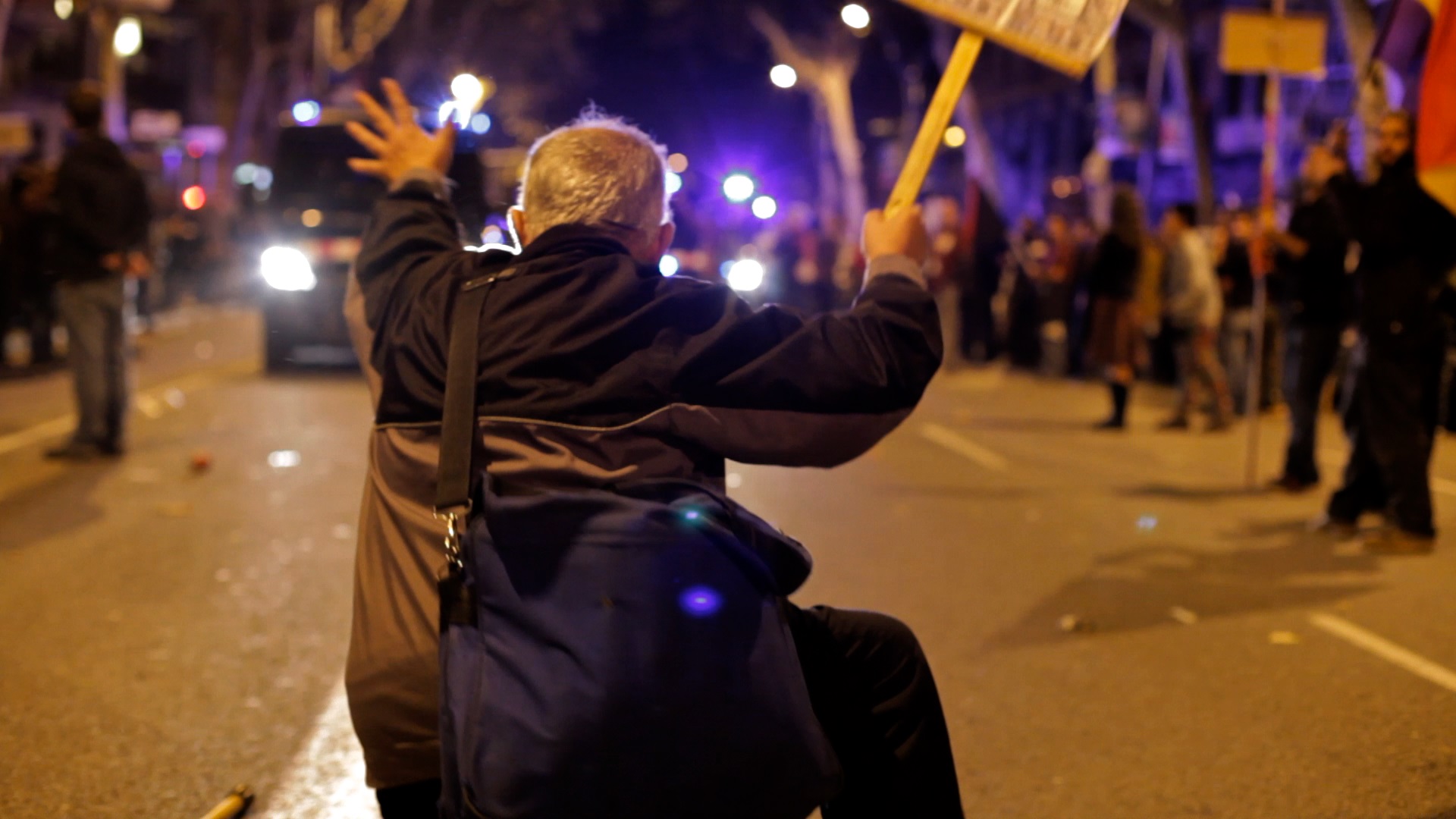Kony2012 geslaagde viral, maar iets te ‘White Man’s Burden’
Kony 2012 (video) is sinds maandag al bijna 66 miljoen keer bekeken op YouTube en op Vimeo bijna zestien miljoen keer. De activistische boodschap van organisatie Invisible Children lijkt haar doelgroep gevonden te hebben.
Lees op The Christian Science Monitor hoe Kony2012 viral ging.
Maar de boodschap lijkt ondanks het aantal hits, onder andere dankzij artiesten als P.Diddy en Rihanna die Kony 2012 deelden op Twitter, niet aan te slaan. De video kreeg de afgelopen dagen veel kritiek te verduren.
Volgens Max Fisher van The Atlantic versterkt de campagne van Invisible Children “een gevaarlijk, eeuwenoud idee dat Afrikanen hulpeloos zijn en dat idealistische westerlingen hen moeten redden”. Fisher:
“Kony 2012 is so seductive for precisely the same reasons that make it so dangerous. The half-hour video […] sets viewers up for a message so gratifying and fulfilling that it is almost impossible to resist: there is a terrible problem in the world, you are the solution, and all you have to do is pass along this video. Unless you’re already well-enough informed on Central Africa to see the video’s many flaws — and the vast majority of people, very understandably, are not — only the most guarded skeptic is going to be able to resist. There’s a certain tragedy to that because […] it teaches people to be cynical about activism.”
De Oegandese blogger Rosebell Kagumire heeft ook zware kritiek op de aanname van de makers van de video, dat de onbekendheid van rebellenleider Joseph bij “miljoenen Amerikanen” en andere westerlingen de reden is dat hij nog niet aangehouden is voor zijn misdaden. Complete onzin, vindt Kagumire. Volgens haar portretteert Invisible Children haar en de Oegandese bevolking onterecht als machteloos.
“I think it’s all about trying to make a difference, but how do you tell the story of Africans? It’s much more important what the story is, actually, because if you are showing me as voiceless, as hopeless… you shouldn’t be telling my story if you don’t believe that I also have the power to change what is going on. And this video seems to say that the power lies in America, and it does not lie with my government, it does not lie with local initiatives on the ground, that aspect is lacking. And this is the problem, it is furthering that narrative about Africans: totally unable to help themselves and needing outside help all the time.”
Kagumire in haar reactie op YouTube:
De kritiek op Invisible Children richt zich dus voornamelijk op deze eigentijdse toepassing van de zogenoemde ‘White Man’s Burden‘ (wiki); de zelfopgelegde verantwoordelijkheid voor het welzijn van Afrika, aangezien de inwoners dat zelf niet zouden kunnen.
Maar ook op de feitelijkheid van Kony2012 valt het een en ander af te dingen, schrijft Joshua Keating op Foreign Policy. De campagne komt te laat want het gevaar van Kony is sterk afgenomen. Keating:
It would be great to get rid of Kony. He and his forces have left a path of abductions and mass murder in their wake for over 20 years. But let’s get two things straight: 1) Joseph Kony is not in Uganda and hasn’t been for 6 years; 2) the LRA now numbers at most in the hundreds, and while it is still causing immense suffering, it is unclear how millions of well-meaning but misinformed people are going to help deal with the more complicated reality.
Onder andere de Oegandese dichter Stephen Obeli zou liever zien dat de internationale gemeenschap zich richt op de uitbraak van het zogeheten ‘Nodding Disease’ (wiki), een fatale ziekte die vooral kinderen treft.
Donderdag reageerde Invisible Children op de kritiek, inhoudelijk maar ook op financieel gebied.
“We’ve done our utmost to be as inclusive, transparent, and factual as possible. We built this organization with “seeing is believing” in mind, and that’s what why we are a media-based organization. We WANT you to see everything we are doing, because we are proud of it. Though we would no longer consider ourselves naive, we have always sought counsel from those who know much more. We have never claimed a desire to “save Africa,” but, instead, an intent to inspire Western youth to “do more than just watch.””
Het ziet er naar uit dat de commotie rond Kony2012 nog even door blijft woekeren. Het buitenlandblog The Lede van The New York Times wijst naar een publicatie van Adam Branch, een Amerikaanse mensenrechtenexpert die woont en werkt in Oeganda. Branch vreest dat Invisible Children “gebruikt wordt” door de Amerikaanse autoriteiten om hun macht te vergroten in centraal Afrika. In oktober stuurde Washington al honderd adviseurs om de jacht te openen op Kony. Branch:
My frustration with the group has largely reflected the concerns expressed so eloquently by those individuals who have been willing to bring the fury of Invisible Children’s true believers down upon themselves in order to point out what is wrong with what this group of young Americans is doing: the warmongering, the self-indulgence, the commercialization, the reductive and one-sided story they tell, their portrayal of Africans as helpless children in need of rescue by white Americans, and the fact that civilians in Uganda and central Africa may have to pay a steep price in their own lives so that a lot of young Americans can feel good about themselves, and a few can make good money. This, of course, is sickening, and I think that Kony 2012 is a case of Invisible Children having finally gone too far. They are now facing a backlash from people of conscience who refuse to abandon their capacity to think for themselves….
Invisible Children is a symptom, not a cause. It is an excuse that the US government has gladly adopted in order to help justify the expansion of their military presence in central Africa. Invisible Children are “useful idiots,” being used by those in the US government who seek to militarize Africa, to send more and more weapons and military aid, and to build the power of military rulers who are US allies. The hunt for Joseph Kony is the perfect excuse for this strategy—how often does the US government find millions of young Americans pleading that they intervene militarily in a place rich in oil and other resources? The US government would be pursuing this militarization with or without Invisible Children—Kony 2012 just makes it a bit easier. Therefore, it is the militarization we need to worry about, not Invisible Children.







